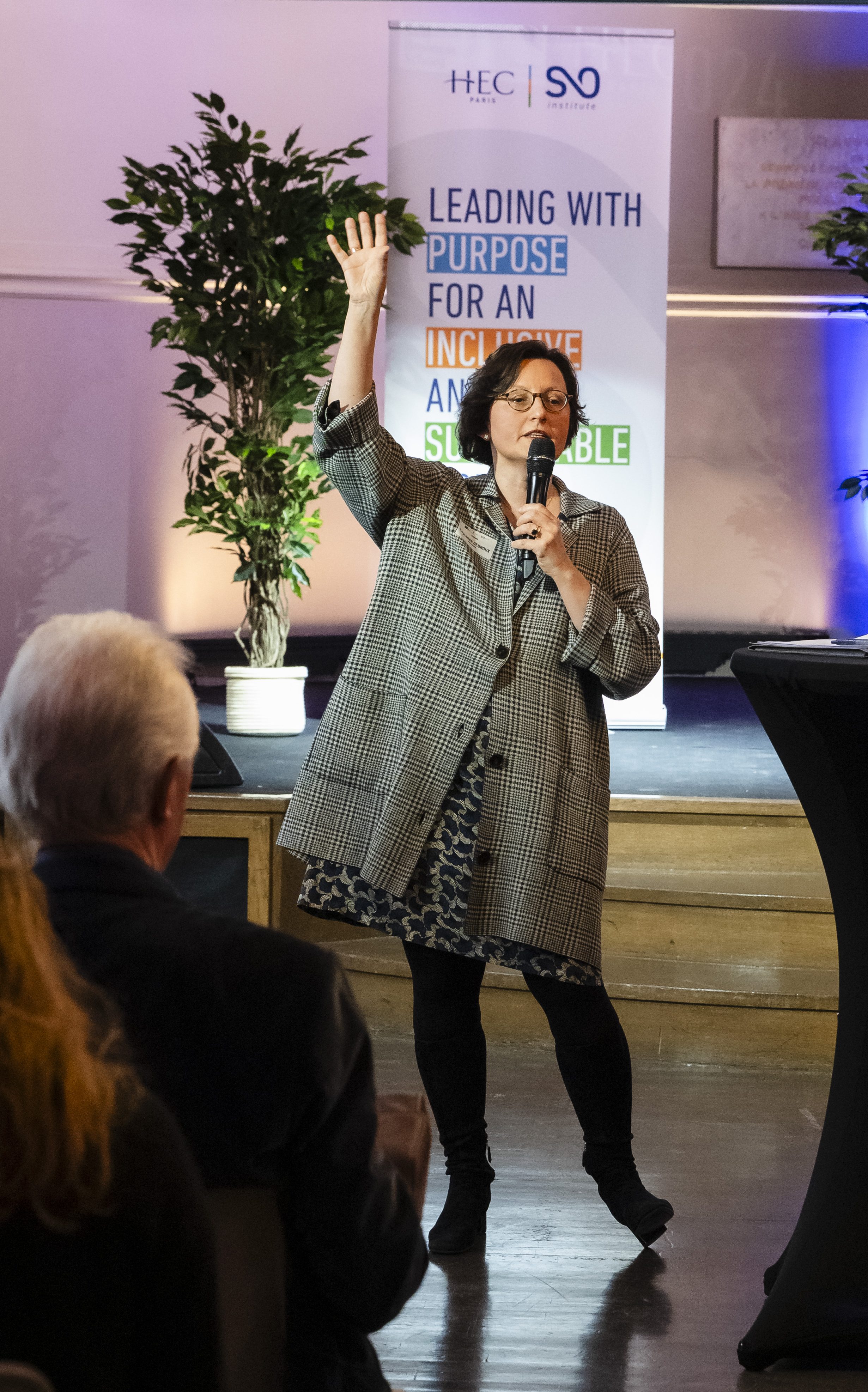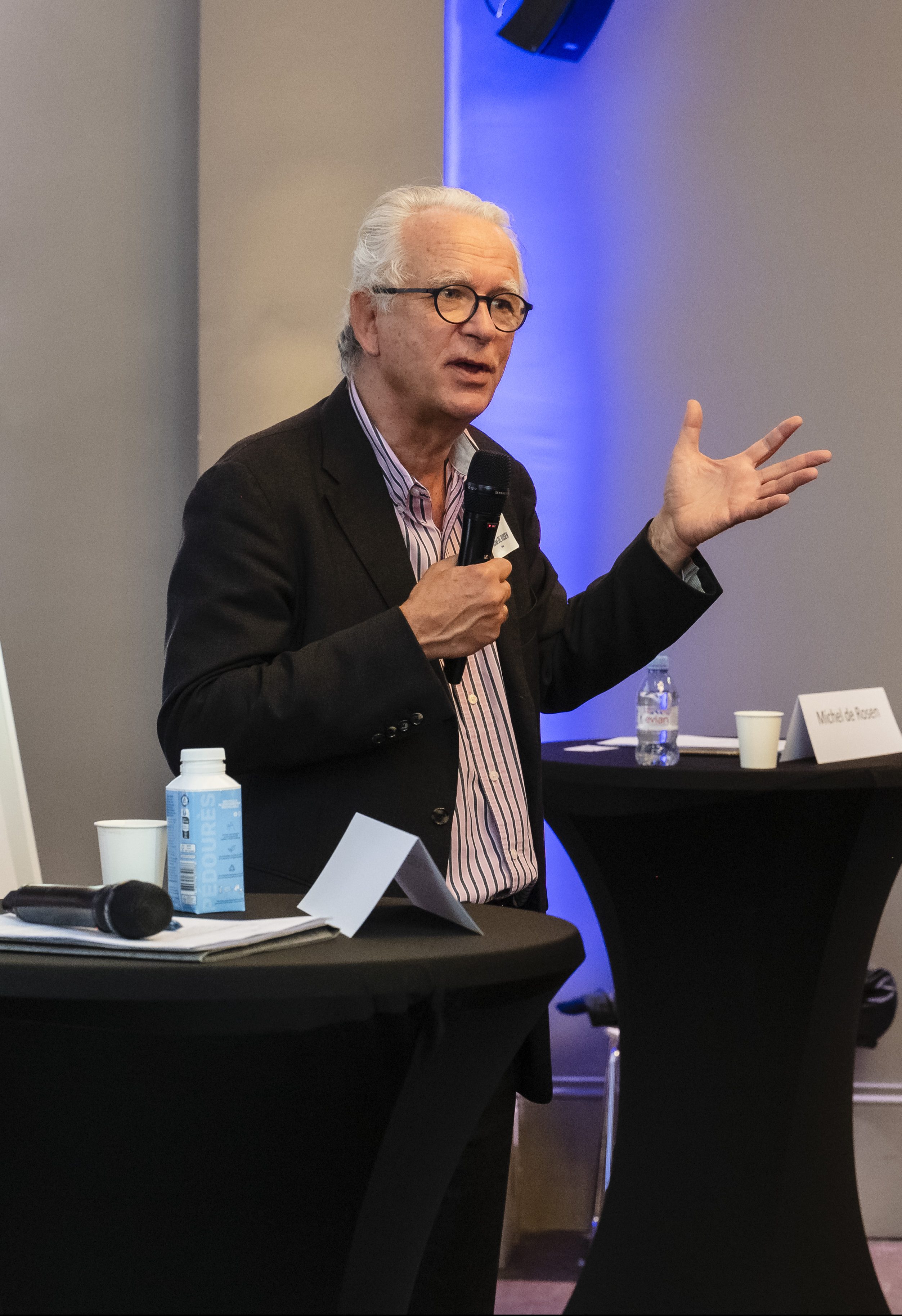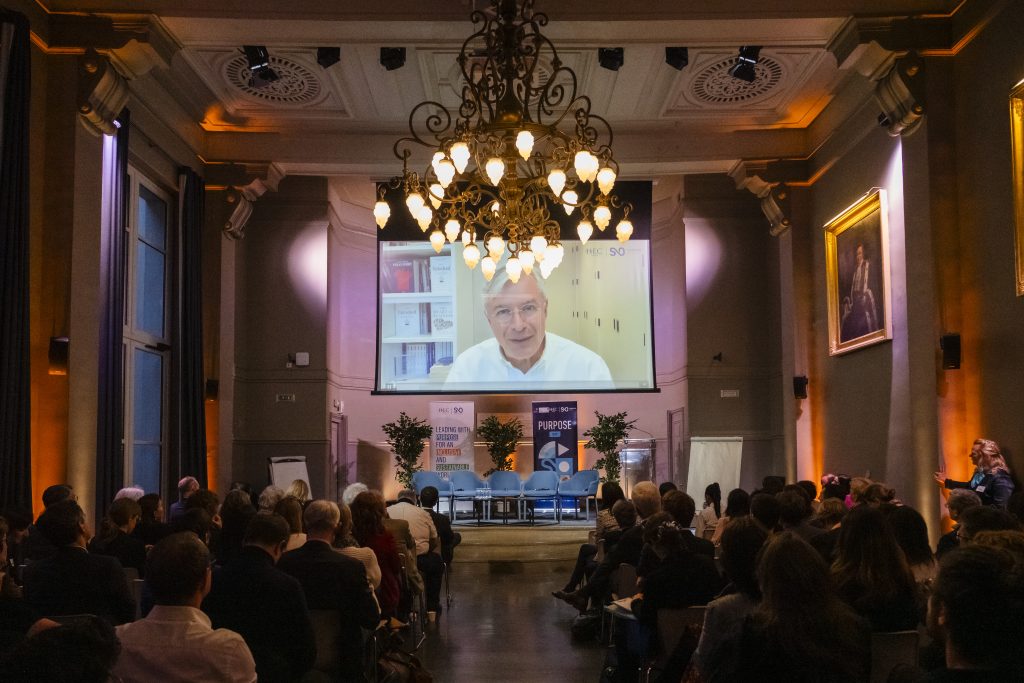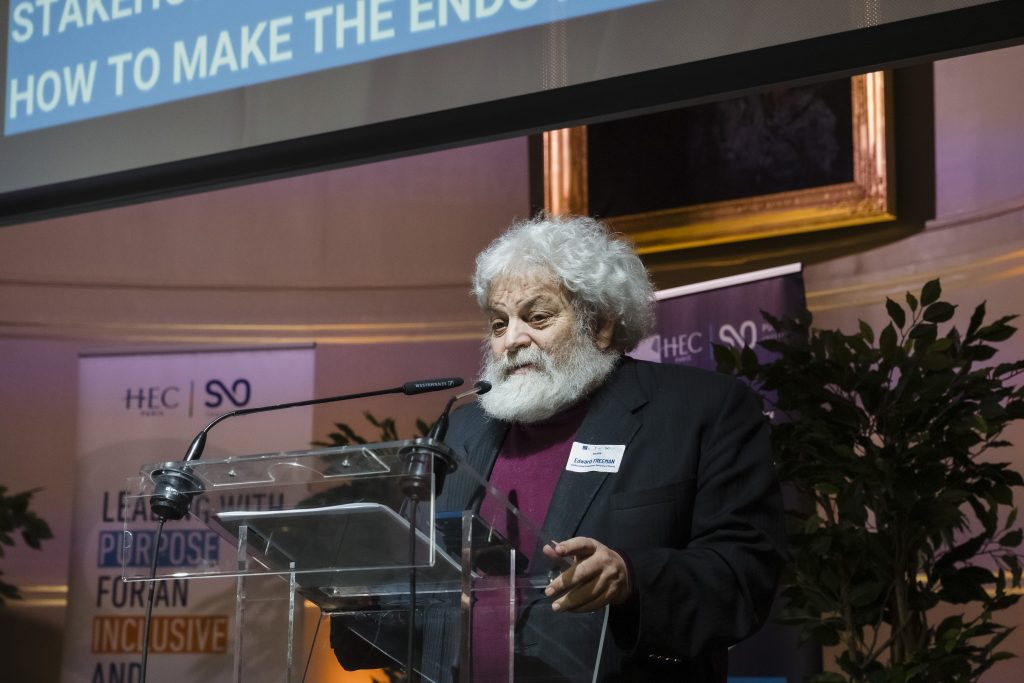Tips From The Alumni: How To Implement Purpose In The Boardoom

HEC Paris S&O Institute threw its second Purpose Day last Tuesday at l’Hôtel de l’Industrie in central Paris. From former Best Buy CEO Hubert Joly (H.81) to Novo Nordisk board member Laurence Debroux (H.92), a handful of C-suite executives were invited to share their wisdom around the notion of purpose. Here is their advice.
The Sustainability and Organizations Institute president Rodolphe Durand, who studies purpose in the corporate world, defines it as “a company’s reason of being in the long run.” Does a company’s purpose have to be ethical? Are we debating environment and social justice vs. profits here? Not necessarily. As pointed out by panelists, the purpose of a company might as well be to make money. But as society now calls for companies to “mind the gap between their statements and their actions”, as Hubert Joly puts it, a need to stand up for the common good may now influence decision-making.
On Purpose Day, all the executives in the room agreed: having a goal to share and moving in the same direction allows for fluidity in human interactions and makes it easier to implement a strategy. So how are people at the top doing it? Here are ways to concretely implement the purpose of your company by three HEC alumni whose job is to provide guidance to management and shareholders.
1 – Write down – or type out – your purpose
“Purpose should not only be a clear sentence. You should be able to explain it in a document. Where do you want to go? What kind of asset do you want to develop? What are the aspects you want to build to fight in the new competition sphere? Having a paper with a precise definition and an explanation of what you mean by purpose, page to page, will help you make sure that, as a board, you can figure out where we want to go from a strategic point of view. Purpose should be validated and defined by the board. Of course, you can involve stakeholders and investors. But the final responsibility falls to the board when it comes to defining the strategy. This vision should be known by your stakeholders. And make sure to monitor what you do for your purpose. » – Jean-Florent Rérolle (MBA.91), board member of EthiFinance and President of VienGi.

2 – Allow dissenting opinion
« You want to have a mix of challenge and empathy. Allow dissenting opinion, being able to challenge management, sometimes in a very direct way, but also understand that management needs a safe place to put the challenges on the table. Today is more unforgiving than ever. You don’t want these people to go home. You want them to have the courage to actually go on. In my experience, most of the CEOs I’ve worked with weren’t doing it for the money. It might be difficult to believe but I met people who were doing it because they were passionate about it. » – Laurence Debroux (H.92), board member of Novo Nordisk.

3 – Communicate horizontally, not vertically
« The first impression is that fraternity – in the supportive approach sense – and corporate competitiveness are two different worlds, a bit like oil and water. But I believe that fraternity can be a huge asset for a company. It’s all about horizontal communication. If you don’t do all the horizontal work, the company doesn’t function. Whether it’s a shop with bank agents, a factory or a newspaper being made, you need a lot of horizontal interactions. In today’s world, when people apply for a job, they don’t only look at the pay, the compensation, the potential. They also want to know what the culture of the company is. Can they have a say? » – Michel de Rosen (H.72), chairman of the board at Faurecia.


Hubert Joly (H.81) addressing the crowd in a video shown at l’Hotel de l’Industrie in Paris on the second edition of HEC Paris S&O Institute Purpose Day. Photos : ©HECParis/Marcella Barbieri
Is purpose in the boardroom ultimately about mindful and effective communication? The concept of kindness was surely reiterated during the event sharing session and closing speeches. Former Best Buy CEO Hubert Joly, who recorded a video the audience watched religiously, said purpose today is about “following up the key drivers of human motivation, authentic human connections, psychological safety, learning, growth margin and certainly the idea of feeling empowered.”

American philosopher Edward Freeman giving a speech on the second edition of HEC Paris S&O Institute Purpose Day. ©HEC Paris/Marcella Barbieri
American economist and philosopher Edward Freeman, father of the stakeholder theory, came to advocate for the “old business story to be abandoned. It’s not useful to the challenges we see today”, he said. “We don’t have to be maximizers of own short-term self-interest. The good news is there is a new story, and it is written by you. Stakeholder purpose, values and ethics are as least as important as value and profits.” Should we expect a different kind of conversation behind closed doors now?
Photos : ©HECParis/Marcella Barbieri
Published by Estel Plagué

